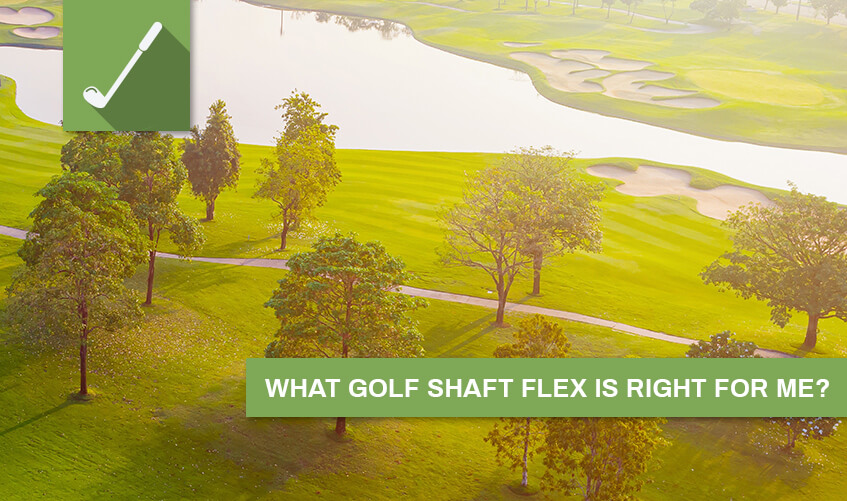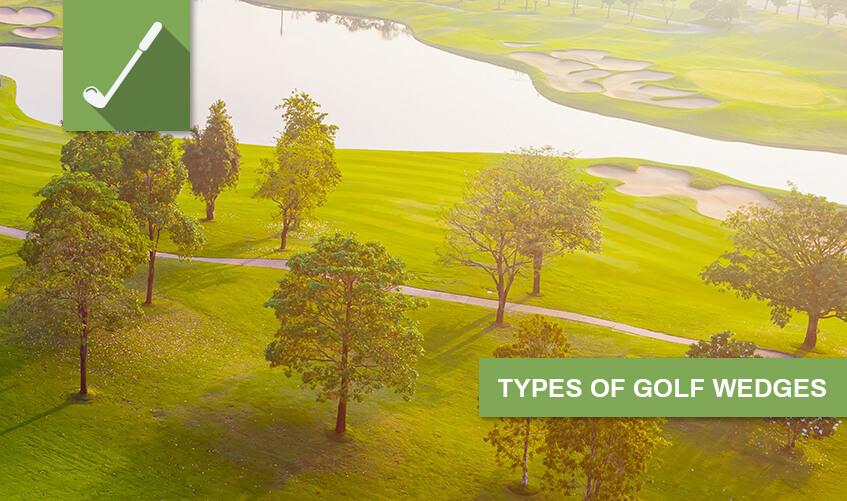What Types of Clubs Should I Use for My Handicap?
Every golfer has their own unique story to tell about his or her first set of clubs: one player worked all summer in junior high for his first set, another inherited the same clubs his grandfather played with … the stories are endless, and special to anyone that’s ever played the game.
When a player gets his or her first set of golf clubs, whether it’s when they’re still too small to swing a driver with precision, or not until middle age prompts a person to take up a new hobby, there’s a feeling of excitement and elation that comes with holding those first sticks.
In fact, many players picking up a set for the first time rarely even consider whether or not they’re choosing the right clubs for their beginning golf game. Many experienced players are no different, either, occasionally going for brand recognition rather than considering club features and benefits.
Picking out the right set of golf clubs isn’t always a walk in the park. Luckily, we’ve put together an exclusive guide for golfers looking to equip themselves with golf clubs that are custom-fit for their playing style and experience level. Once you’ve determined your handicap, this guide will make shopping for your next set of golf clubs a breeze.
While there is no official rating to differentiate between high handicappers, mid-handicappers, and low handicappers, we’ve listed our categorical take below:
- High handicap golfer – Handicap of 20 or more, typically shooting in the high 90s or more each round.
- Mid handicap golfer – Handicap between 10 and 20, typically shooting in the low 80s to mid 90s.
- Low handicap golfer – Handicap 9 or below, typically shooting in the 70s.
Best Golf Clubs For High Handicap Players
Golf handicaps help players compete against one another by leveling the playing field between an experienced player and one that is just starting out. If you’re a high-handicap golfer, it means you’re just beginning, and could probably use all the help you can get while playing your next round.
Not to worry, because many golf club makers have noticed a strong demand for clubs designed specifically for beginners over the years, and have created some great irons, wedges, and drivers suitable for anyone looking to get into the game.
When shopping for golf clubs for high handicappers, the primary term that you should pay attention to is forgiveness. Forgiveness can be a beautiful thing both on and off the course, and has a special meaning in relation to golf clubs. A forgiving golf club doesn’t care if your drives are off-center, or if you’re hitting your irons a little fat.
Forgiving irons tend to feature perimeter-weighted, or cavity back, clubheads instead of muscle-back clubheads. These clubheads are designed to distribute weight around the face of the club, creating a larger sweet spot for off-center shots. Forgiving drivers tend to be a little different, with larger clubheads providing a larger striking surface for beginning golfers.
Clubs with good forgiveness make the most of each shot, especially the not-so-perfect ones.
Best Golf Clubs For Mid Handicap Players
If you’re a mid-handicapper, it means you know your way around the golf course, but would still like to improve your game. Most mid-handicappers are shooting in the low 80s on a good day to the mid-90s on a bad one, so shopping for clubs that will allow them to improve without making their rounds too challenging can be a bit tricky.
Typical mid-handicappers fall into the “Goldilocks” category, meaning they shouldn’t be using clubs designed for beginners – like cavity back irons with huge striking surfaces, but they’re not ready for the forged golf irons the pros love just yet. Instead, they should look for middle-of-the-road clubs that are just right.
Fortunately, golf equipment makers love designing clubs specifically to help golfers get lower scores, and have a variety of options for mid-handicappers. For mid-handicappers struggling to make good contact with their fairway woods and long irons, hybrid golf clubs are great alternatives. These clubs give golfers the larger striking surface they need to make solid contact, without the longer shaft that many fairway woods and long irons have.
Mid-handicap golfers can also start looking at drivers that don’t feature gigantic clubfaces, as a smaller striking surface ultimately means improved aerodynamics for faster swing speeds off the tee.
Best Golf Clubs For Low Handicap Players
If you’re looking for golf clubs for advanced players, then congratulations are certainly in order; many amateur players and weekend warriors go their entire lives without getting close to par. If you’re a member of that elite group of golfers, then you’ll certainly want a set of clubs that won’t hold you back on the course.
This is where forged irons come into play. Forged irons are known for their solid, muscle-back design, setting them far apart from hollow-back irons. Muscle-back clubs typically provide scratch golfers with a lower flight trajectory for their golf balls, hurtling them further down the fairway than any perimeter-weighted iron could ever dream of – as long as one can make consistent contact with a smaller sweet spot.
Scratch players that are looking for drivers can focus more on distance and control as opposed to the concerns of mid- to high-handicap golfers, like keeping it on the fairway. Scratch players have better consistency and accuracy, meaning they can wield long-shafted drivers more easily than other golfers can. They also don’t have to concern themselves with smaller clubfaces, either, and can focus on other elements that will lower their scores.
You wouldn’t expect a 15-year-old taking their first driving test to be able to handle a premium sports car, so why would a high handicapper be expected to hit the same clubs as Tiger Woods? The clubs available on the market today are suited to fit every variety of golfer that’s out there. Determine your handicap level, then do a little research before shopping, and you can be sure to find the perfect set of clubs for your golf game.



